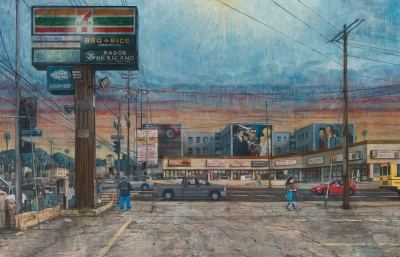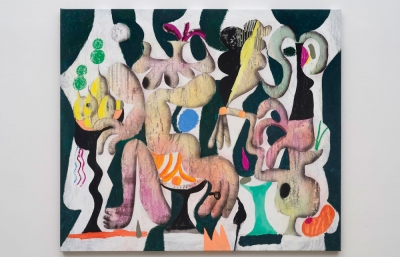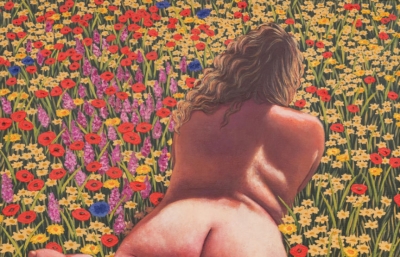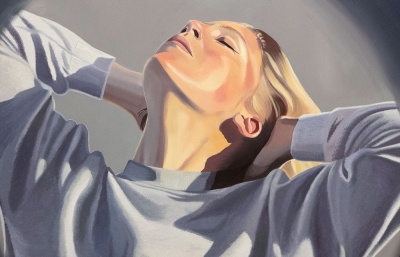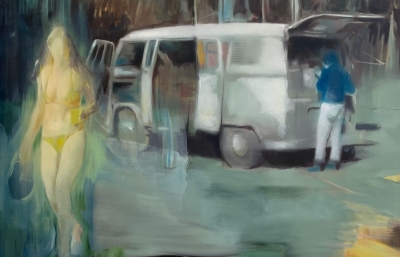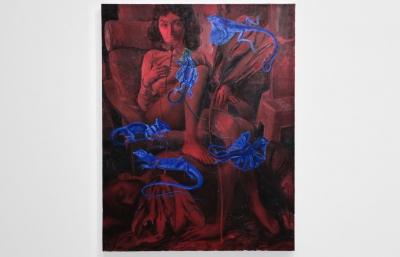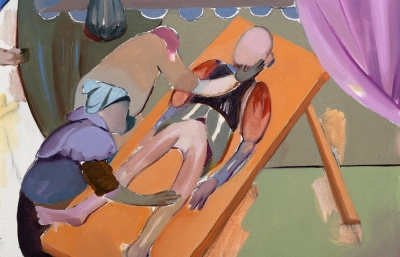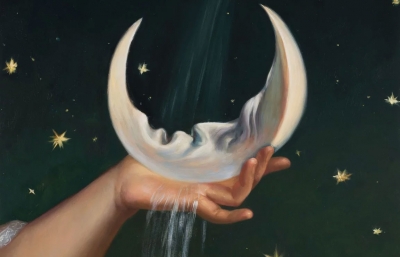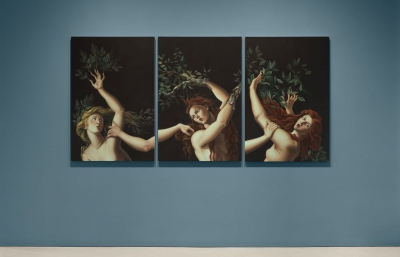For her first solo show at Jeffrey Deitch, Los Angeles-based artist (and Juxtapoz favorite and past featured artist) Zoé Blue M. transports viewers into the world of a takkyu onsen—her name for a table tennis bathhouse. The exhibition, titled Hard Boiled, highlights a style of bathhouse that fuses sport and relaxation within the Japanese tradition. Combining painting and installation, the show illustrates the intricate relationship between communal bathing and personal identity, particularly one that resonates with the complexities of contemporary femininity.
Partly inspired by her brother’s table tennis club and brand Little Tokyo Table Tennis, M. merges ping pong with the unique visual language of Japanese bathhouses. These bathhouses—both the onsen, known for its natural hot springs, as well as the sentō, its man-made counterpart—are known for their ornate architectural details. They serve concurrently as primary actors in and dynamic backdrops for the exhibition. Historically, these spaces were sanctuaries for all, where gods and people of different backgrounds would commune out of necessity. As societal norms evolved, members of the elite built private bathrooms, resulting in a larger socioeconomic divide between classes. In recent years, however, Japanese bathhouses have become places of ritualistic action and community engagement.
Through Hard Boiled, M. draws upon her personal experience and reflects on the divine femininity that permeates the bathhouses—places where women can reclaim agency outside the male gaze. Historically relegated to the margins of art, the theme of bathing has often been subject to the scrutinizing lens of men. In anime and manga, bathhouses frequently become stages for the sexualization of female characters, reducing them to mere tropes. M. challenges this notion, depicting figures both aware and unaware of the voyeur, as they weave in and out of their bodily agency. The figures are caught in moments of care and, at other times, in moments of tension as they face off in a game of table tennis. Reminiscent of the style of ukiyo-e woodblock prints, the figures closely resemble each other, and the artist welcomes viewers to engage in multiple interpretations. Are they different figures interacting with each other, or are they a single figure caught in a continuous narrative at several moments in time?
The title of the exhibition, Hard Boiled, alludes to the tradition of consuming hard-boiled eggs in Japanese and Korean bathhouses. This ritual is emblematic of self-transformation and resilience in the face of being in “hot water.” The works depict table tennis and bathing not just as physical acts but also as tools for introspection, illustrating a journey that weaves femininity, agency, and the interplay of community and self.





